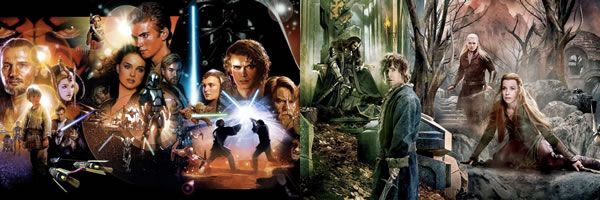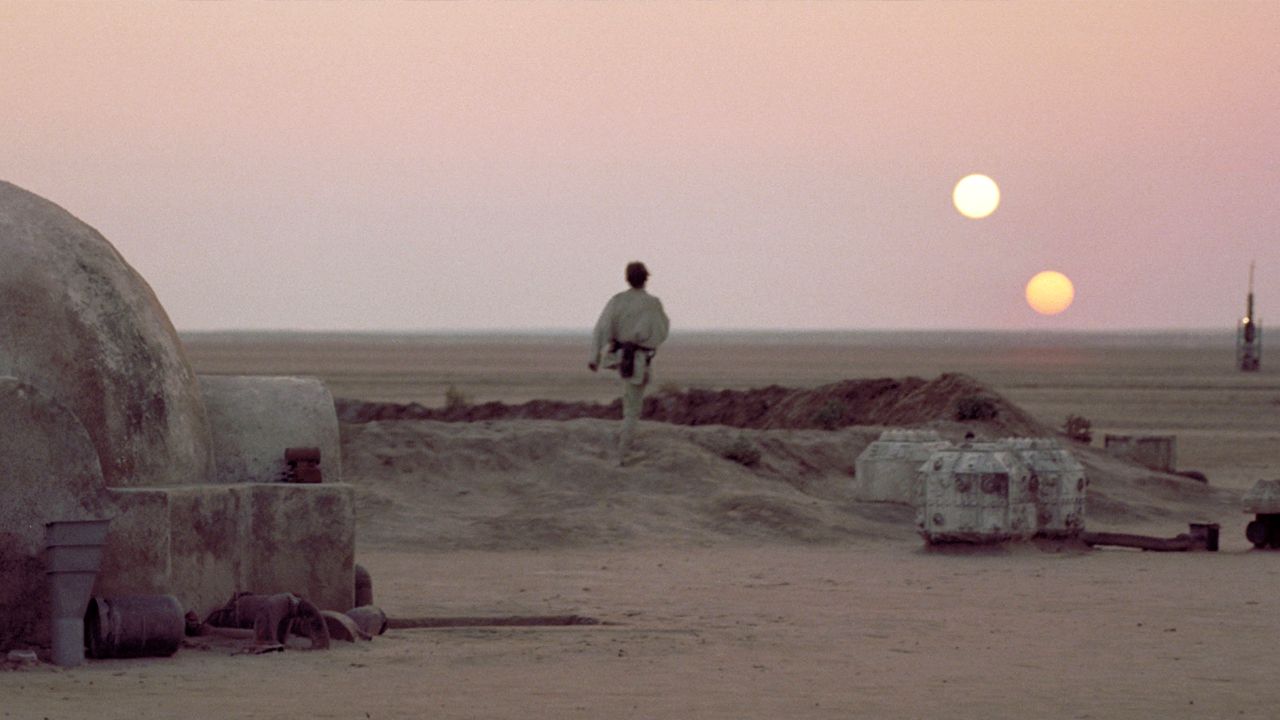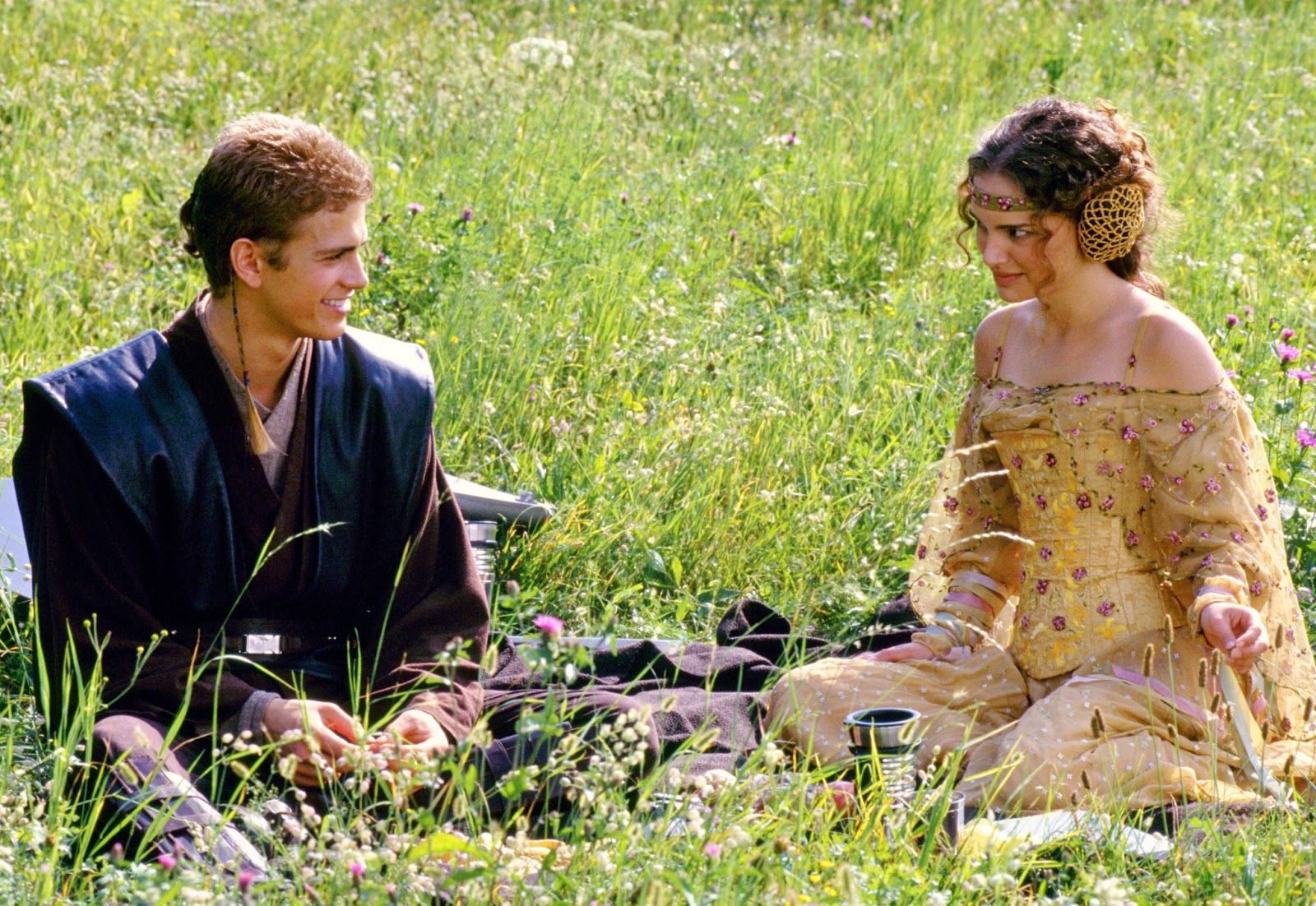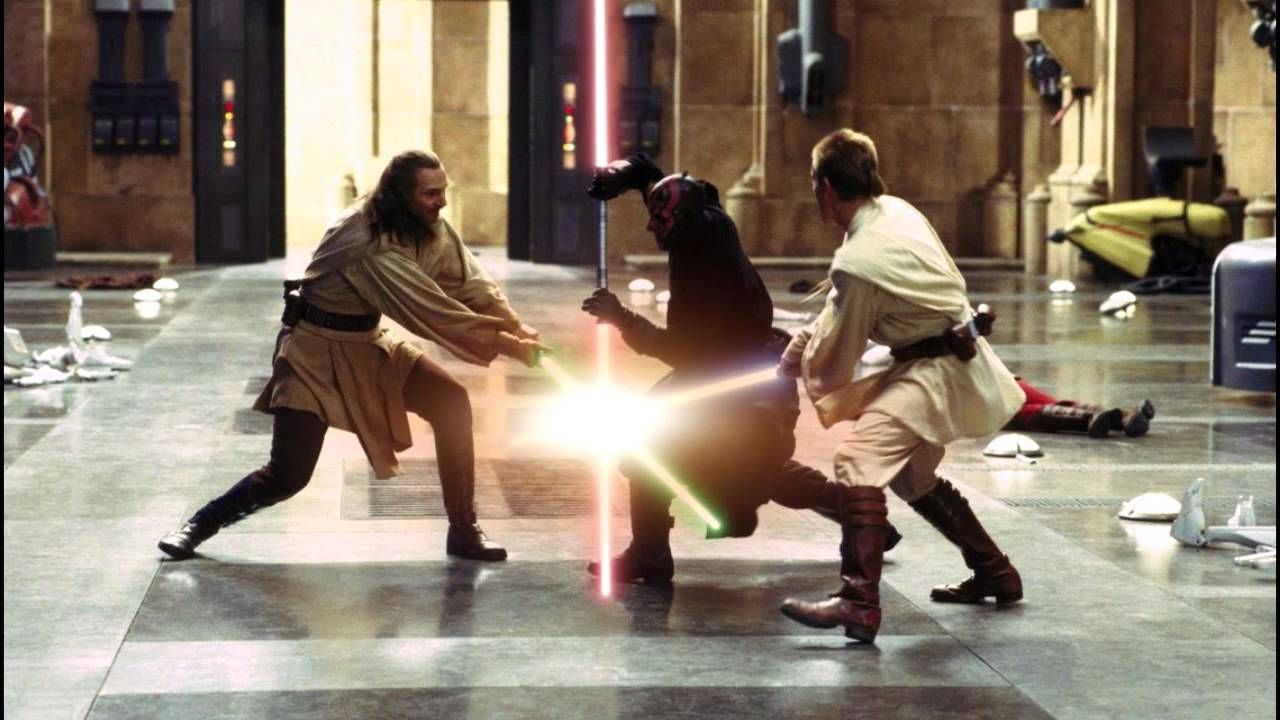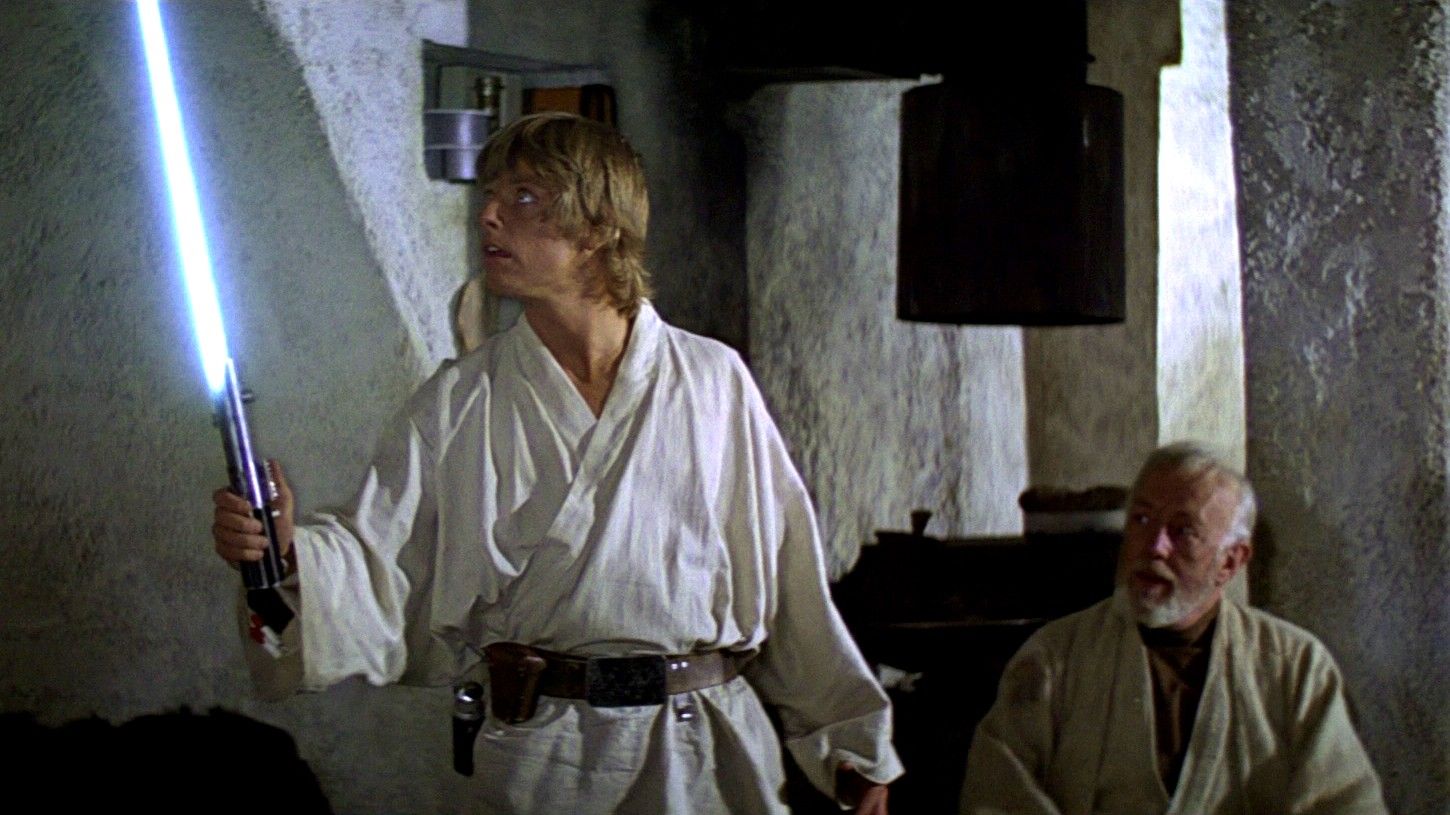Try to imagine a world where the Star Wars prequels don’t exist. How do you think George Lucas is viewed in said world? There’s no controversy. There’s no backlash. The heaviest criticism he receives is for messing with the original movies, and while that criticism is warranted, he remains a widely beloved figure who’s credited with creating one of the most enduring trilogy of films ever made.
It’s also a world where people aren’t careful with what they wish for, and would like to see prequels.
To be fair to Lucas, it’s not like the prequels were automatically a bad idea, and if you take many, many steps back, you can kind of see what he wanted to achieve: the loss of innocence leading to a tragic downfall. If the original trilogy marked the success of a rebellion and the restoration of hope to the galaxy, the prequel trilogy was supposed to mark the death of peace and how a good man went evil. Perhaps if Lucas had given that seed of an idea to another filmmaker and screenwriter and let them run with it, the prequels could have been a success.
However, it didn’t turn out that way, and while I will argue that the Star Wars prequels are worse than Peter Jackson’s The Hobbit trilogy, I’ll say that the shortcomings of both series come from a similar place: two directors who became overly enamored of technology at the expense of quality storytelling. Both series feel like tech demos rather than expansions of beloved mythology. The technology doesn’t serve the storytelling; the storytelling serves the technology.
So why are The Phantom Menace, Attack of the Clones, and Revenge of the Sith worse than An Unexpected Journey, The Desolation of Smaug, and Battle of the Five Armies? There are several reasons.
A Generation Grew Up on ‘Star Wars’
I don’t want to diminish the impact of the Lord of the Rings trilogy. It’s a landmark in cinema, and it deserves all the praise and accolades it receives. However, Lord of the Rings is a tricky franchise because it has a following from book readers and yet less than 10 years passed between the Lord of the Rings: The Return of the King and The Hobbit: An Unexpected Journey. Lord of the Rings had a devoted fandom, but it was a fandom that had already come to the property for decades because of J.R.R. Tolkien’s books or they still had the movies fresh in their memories.
Compare that with Star Wars, which took an interesting trajectory from blockbuster trilogy to nerdy cult following and then back around to worldwide phenomena. While Star Wars never completely left the public eye, the space left between Return of the Jedi and The Phantom Menace created a vacuum where fans put in their hopes and dreams. They waited patiently for the day when they would be gifted with the prequels, and for their patience, they were rewarded with resoundingly bad movies.
When The Hobbit came out and disappointed audiences, no one tried to retcon history by arguing that The Lord of the Rings movies were also poorly received at the time or that the flaws of the original were consistent with the flaws of the prequels. The Phantom Menace sent fans into full-scale denial, and that denial only comes when you’ve built up decades of expectations. While those expectations weren’t the root cause of the problems for the Star Wars prequels, they compounded the problems that existed.
There Are No Redeeming Characters or Performances
The prequel trilogy’s problems emanate from the fact that Lucas started his story in the wrong place. For Lucas, the story of a sad little kid who leaves his mom was where we should have met the man who would become Darth Vader. Unfortunately, 10-year-old Anakin isn’t particularly interesting. Jake Lloyd’s not a good actor, and even if he was, the story is spread far too thin. He becomes a supporting character in his own narrative, forced into the background by Qui-Gon, the dealings with the trade federation, the growing threat from the Sith, Palpatine’s political machinations, Queen Amidala trying to reclaim Naboo, and whatever the hell it is Jar Jar Binks is supposed to be doing.
So it’s a story that starts too early and shows too little, and from there it’s struggling to keep up. But even if the prequels had started with Attack of the Clones, you’d still be stuck with a bad Anakin Skywalker. It’s hard to say who’s to blame for Hayden Christensen’s wooden performance since pretty much every actor who had the misfortune of being in the prequels comes off badly, but even if you lay the blame at Lucas’ feet, it doesn’t change the fact that Anakin remains an uninteresting character. Again, if you step really far back and squint, you can kind of see what Lucas wanted—a guy who gave into his emotions and those emotions consumed him. It’s not the worst idea, but in execution, Anakin is a whiny, cocky, love-struck teen. Other than the violence, there’s really nothing to indicate that this guy will become Darth Vader.
While The Hobbit trilogy also suffers from having too many characters and too few of them being interesting, it at least has some good ones. Martin Freeman gives a strong performance; Richard Armitage is excellent as Thorin Oakenshield. There are people in The Hobbit movies that when they’re on screen, I sit up and pay attention. I may not care about most of the dwarves, but I care about Bilbo and I care about Thorin, and since they drive the action, I’m at least interested in what they’re up to even if the surrounding film doesn’t entirely live up to the promise of the heroes’ quest.
Compare that to the Star Wars prequels where the nicest thing you can say is that Ewan McGregor eventually grows into giving a reasonable Alec Guinness impression. But ultimately, do you care about any of the following characters: Anakin Skywalker, Queen Amidala, Jar Jar Binks, Qui-Gon Jinn, Watto, Mace Windu, Darth Maul, Count Dooku, Jango Fett, and General Grievous? And if we have any affection for R2-D2, C-3PO, Yoda, and Obi-Wan, it feels like affection that’s a result of better movies, and not what they do in the prequels.
It Never Taps into the Excitement of the Original Trilogy
The original trilogy is expertly paced and propulsive. By comparison, the first two prequels aren’t exactly sure what they want to be. The Phantom Menace is supposed to be a fun family film with a slapstick sidekick and a hero kid, but it’s also a film where the central conflict revolves around trade negotiations. Even though plenty of people love Star Wars, Phantom Menace doesn’t really seem like it has an audience in mind, so it’s an amalgam of loosely connected ideas, none of which really click. By comparison, Attack of the Clones appears like it wants to be a love story, but it’s also a love story that involves secret cloning facilities and the hero slaughtering an entire village because they killed his mom. He also spends time telling us he doesn’t care for sand. Revenge of the Sith is a deeply flawed film, but at least it knows it’s a downfall story from the start and never really wavers from that.
In between all of these signposts are lots and lots of meetings where people talk in living rooms, conference halls, and hallways. Before the prequel trilogy, Jedi seemed pretty cool. They had lightsabers and special powers. It wasn’t until the prequels that we learned that Jedi are super-boring, woefully inept, and monastic to a fault. While Lucas had no problem highlighting them in action scenes, we no longer cared what happened to them. The climax of Attack of the Cones where the Jedi come down and there’s a hundred lightsaber battles going on has absolutely no stakes.
Even the best action scenes in the prequels feel like CGI overload at the expense of character. The “Duel of the Fates” from Phantom Menace is an expertly choreographed lightsaber battle, but we don’t care about any of the participants. It’s simply meant to look cool. When Anakin and Obi-Wan finally fight in Revenge of the Sith, there’s no weight because it seems like their entire relationship took place off screen. Like the Hobbit films, the prequels operate under the assumption that bigger is better, but at least in The Hobbit films, I care about what happens to Bilbo and Gandalf and Thorin. No one matters in the Star Wars prequels, so the action becomes limp as a result.
The Prequels Harm the Originals
For all of their flaws, The Hobbit movies leave The Lord of the Rings pretty much untouched. In some ways, that makes The Hobbit films an even bigger waste of time because they don’t change your perspective on The Lord of the Rings films in any way. They leave no trace of their existence, and since the Hobbit trilogy turned out to be a disappointment, perhaps that’s for the best.
The Star Wars prequels, on the other hand, are not only disappointing; they cause us to wonder if Lucas ever rewatched the originals before working on the prequels. The number of inconsistencies makes the prequels feel like poorly handled fan-fiction rather than the work of a storyteller elaborating on his tale. For instance, in A New Hope, Obi-Wan tells Luke that when he met Anakin, he was already a great pilot. While that’s technically true if you apply it to pod-racing, you could also say that the dumb kid hit autopilot and accidentally blew up a shield generator. Or when Leia says she remembers her mother being sad, you could assume that she’s referring to her adopted mother, but it seems more like an oversight and that a few decades ago Lucas didn’t know he would kill off Leia’s mom in childbirth.
But more than these individual moments, what the prequels harm the most is their central figure: Darth Vader. Vader is the reason these prequels exist. He’s the main character, and the prequels seem determined to drain him of all his mystique and power. Again, the initial concept at least makes some sense: the downfall of a good man. The problem is in the execution. From terrible casting to awful dialogue to baffling choices, Anakin Skywalker is mishandled at every single step. The prequels rise to a challenge no one was offering: make Darth Vader uncool. In this task and this task only, Lucas succeeded.

